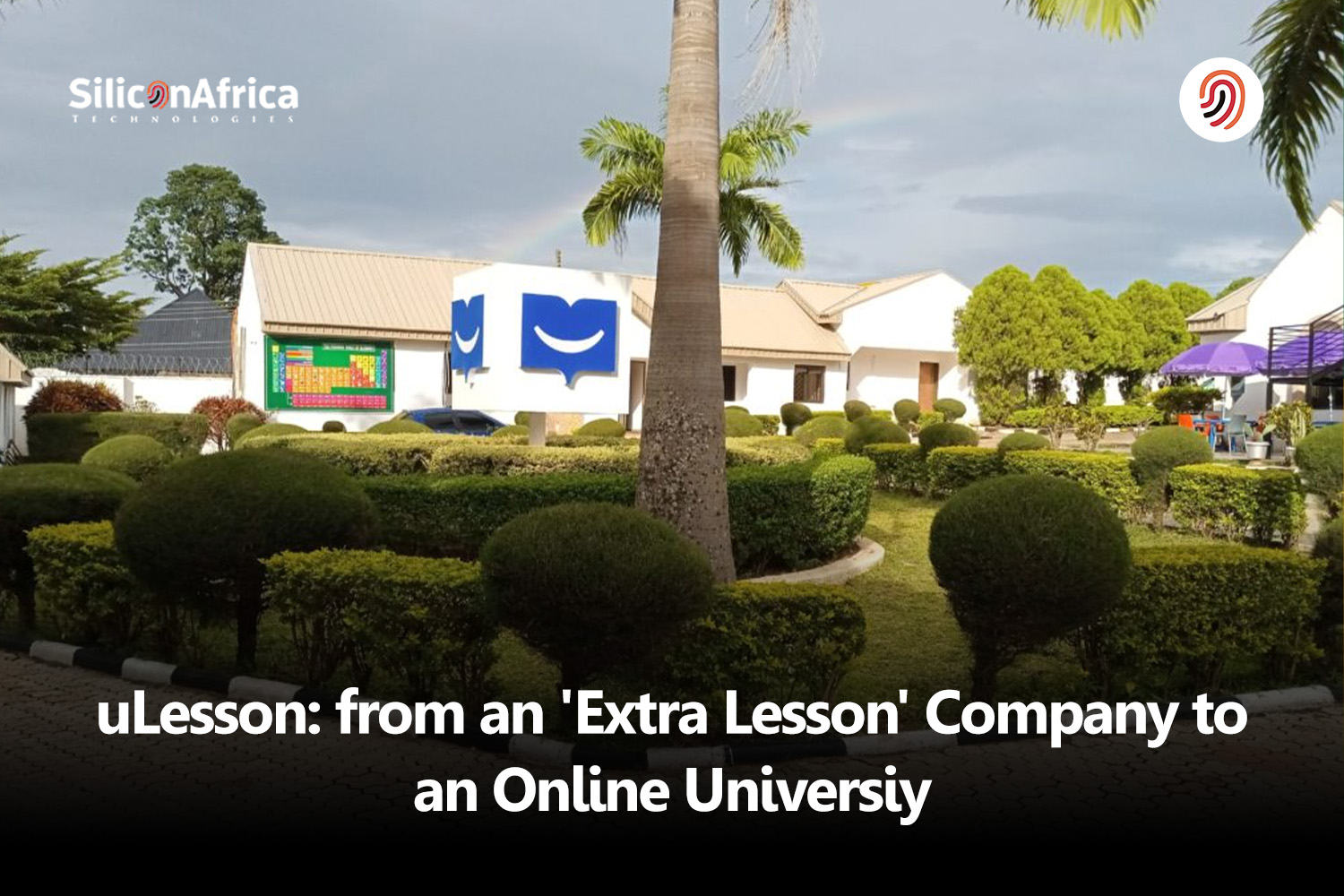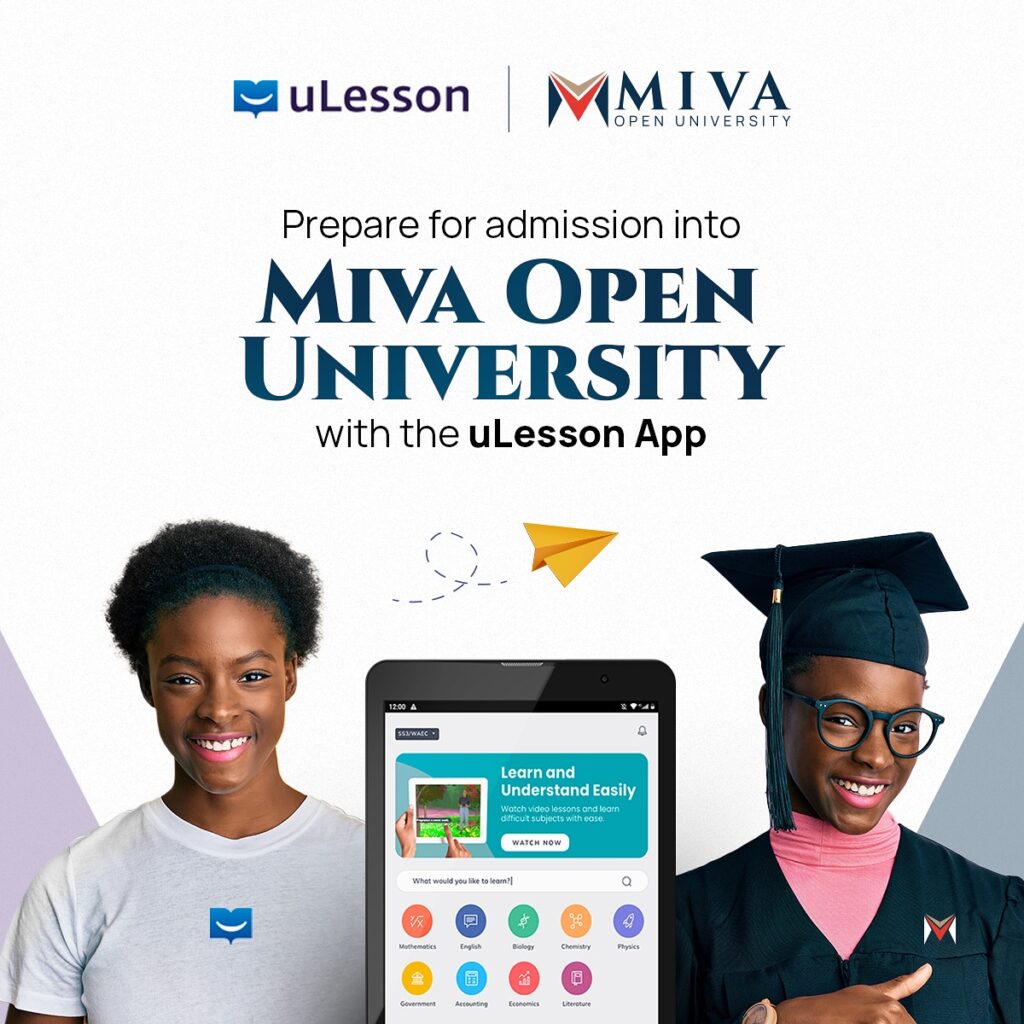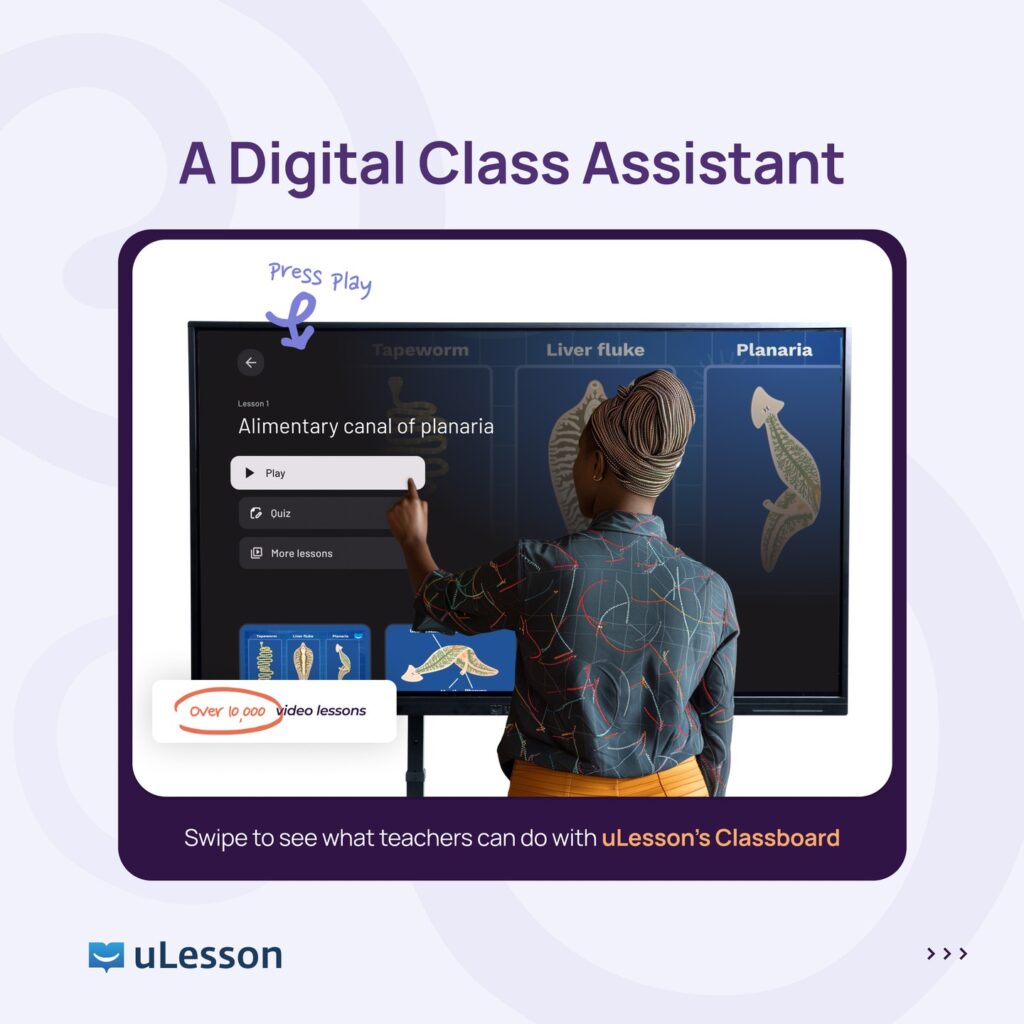Physical Address
60 Ekwema Cres, Layout 460281, Imo
Physical Address
60 Ekwema Cres, Layout 460281, Imo

The journey of Ulesson in Abuja, being a platform that offers subscription-based extra lesson experience for school students to be the foremost online private open in Nigeria has been nothing short of extraordinary.

Picture source: Instagram
What started as a localized solution to educational challenges has blossomed into an expansive platform with global reach.
Keep reading as we walk you through Ulesson’s success and evolution.
Read More: uLesson Cuts Subscription by 50% Due to Economic Hardships to Help Families
Starting uLessson in 2019 after leaving his position as the CEO of Konga, Sim Shagaya’s vision of harnessing the power of technology to provide solutions to traditional methods is insatiable as he delves headfirst into the world of education.
Borrowing largely from the traditional after-school extra lesson idea, uLesson grew to provide a solution where K–12 students can learn from the best teachers in the world without the need for a physical meeting.
Through a combination of pre-recorded and live video lessons, uLesson swiftly gained traction, serving students across eight African countries with its headquarters in Abuja.
Then, it runs with personalized learning experiences tailored to their needs.
Since entering the market, Ulesson has grown, offering personalized solutions to academic challenges faced by Nigerian students.
But Shagaya’s quest to discover new challenges and create lasting solutions didn’t end there.
Recognizing the gaps in Nigeria’s education , particularly between university applicants and available seats, Shagaya saw an opportunity for change.

Picture source: Instagram
The University World News highlights that the number of candidates applying for Nigerian higher education is higher than the available capacity.
Then, out of 1.8 million candidates who applied in 2022, about 600,000 (representing 33.3%) were admitted, according to JAMB.
Furthermore, it is in this gap that Miva University was created to help qualified students acquire a university education.
“We have a monumental deficit in tertiary education,” says Shagaya at the inaugural matriculation ceremony of Miva University.
“Over a million individuals seek university seats annually, yet are unable to secure admission despite their qualifications.
The traditional universities are trying their best, but they still can’t meet the overwhelming demand. We aim to establish a private, open university that adheres to global standards, bridging the gap and providing deserving students with the opportunity to pursue higher education.”
With these words, Shagaya ignites a spark of expectation for the future of Miva University, hinting at academic innovations.
He offers a glimpse into a future where the learning experience transcends traditional boundaries.
Traditional extra lessons have long been a cornerstone of academic support in a country like Nigeria.
From crowded classrooms to makeshift tutoring centers, students often sought additional guidance outside of regular school hours to bolster their learning.
Then, in cases where parents or guardians are financially buoyant, opting for home lessons becomes an option when seeking after-class learning.
Yet, despite the appeal of home lessons, they often lack the flexibility that uLesson provides.
However, when you think of extra lessons, an all-too-familiar scene pops into your mind: a weary student begrudgingly prepares for another hour of after-school instruction after a long day at school.
As the teacher arrives, the dining table transforms into an impromptu classroom, signaling the start of another session.
Traditional extra lessons come with their own set of challenges. Limited resources, overcrowded classrooms, and inconsistent teaching quality were common issues plaguing its effectiveness.
Students also faced barriers to accessing personalized instruction tailored to their individual learning needs.
This arduous task of learning is precisely what Shagaya had in mind to transform when he started uLesson, posed as a response to bridge the gap between quality education and accessibility.
Shagaya referred to the traditional form of learning as a fearful chore and needed to transform the learning experience.
“We wanted learners to realize that learning need not be a painful experience but quite enjoyable (that drives the motivation for study) and something that can be carried through a person’s life whether in or out of the classroom.”
ULesson was launched in Abuja in 2019 with investments from other edtech companies like Owl Ventures and Tencent.
At first, ULesson’s entry into the market was through the sale of pre-recorded videos to K–12 students via SD cards and dongles.
The platform has refined itself, rapidly transitioning into a user-friendly app, downloadable on both PCs and mobile devices.
As of the latest update, ULesson boasts over 5 million app downloads and over 14 million watched lessons, according to the company website.
The advent of technology has caused a shift in all aspects of human endeavors.
From the way we connect with people, conduct business, and buy things, almost everything has moved online.
The emergence of online platforms has facilitated connectivity and accessibility, offering new avenues for learning and growth.
And just when it almost seemed impossible for classrooms to move online, the COVID-19 pandemic forced an unexpected change. It compelled classrooms to transition to virtual spaces.
Then, as governments enforced lockdowns and social distancing measures, students and parents alike turned to online education as an alternative.
One upside of online education is its unparalleled accessibility, which breaks down the walls of geographical barriers.
It also provides learning opportunities for students in remote areas where educational infrastructure is greatly lacking.
Thanks to online education, students can learn at their own pace and convenience.
It also gives room for a customized learning experience. With asynchronous learning options, students can tailor their schedules to accommodate other commitments,
Having recorded success with primary and secondary education, it was time for ULesson to evolve into the tertiary domain, and this was just within four years of its inception.
The challenges that necessitated the need for online learning for primary and secondary education mirrored those in tertiary education, which made it apparent that Sim Shagaya wanted to disrupt the entire education space in Africa by leveraging digital solutions.
Then, addressing the plight of qualified university applicants facing closed doors to learning opportunities through ULesson annually became paramount.
The statistics show the disparity between student-to-teacher ratios reaching as high as 70:1 compared to 15:1 or 16:1 in the US and the UK.
After meticulous planning and deliberations, Miva Online University by Shagaya was established and accredited by the Nigerian University Commission, to provide open and distance learning education.
Speaking at the matriculation ceremony, Tayo Arulogun, the vice-chancellor of the university, emphasized Miva’s disruptive approach to learning.
He also highlighted the institution’s commitment to affordability, flexibility, and quality, ensuring personalized learning experiences enriched by rigorous research outcomes.
Then, as the university officially commenced operation with over 500 students at its maiden matriculation, expectations soared for what the future holds from this out-of-the-box learning experience that has transformed Nigerian education.
Among the matriculated students, Jenifer John expressed her excitement, praising the flexibility and streamlined program organization that facilitated enrollment for working-class individuals.
Initially starting with two faculties—the School of Computing and the School of Management and Social Sciences—Miva Online University has now expanded to include the School of Allied Health Sciences.
Below is a rundown of the faculties and programs offered in the online University.
School of Computing
School of Management and Social Sciences
School of Allied Health Sciences
In a departure from traditional admission processes, Miva Online University adopts a more inclusive approach.
Here, applicants are only required to submit their Senior Secondary Certificate Examination (SSCE) results to secure admission, eliminating the need for additional entrance exams or screenings.
Whereas, applicants in a traditional university would need to meet up with a cut-off mark from JAMB, and even pass additional screening exams at their universities of choice.
This streamlined process stands in contrast to conventional universities, where prospective students must meet specific cutoff marks from JAMB and often undergo further rigorous assessments at their chosen institutions.
By simplifying the admission criteria, Miva Online University opens doors to higher education for a broader range of students, ensuring that merit and potential, rather than standardized test scores, determine access to learning opportunities.
Looking ahead to the future of Miva Online University by Shagaya, barely a year since its accreditation in 2023, anticipation runs high for the journey that lies ahead.
Drawing from the success of its predecessor, uLesson, we envision that Miva’s visionary drive for inclusive education, where barriers to tertiary learning are dismantled, will push the university to great success.
We also believe the coming years will see Miva continually refining its curriculum offerings, expanding its faculty expertise, and embracing emerging trends in online learning to redefine the norms of higher education.
uLesson is a technology-driven educational company dedicated to providing high-quality, cost-effective, and widely accessible learning opportunities for all Africans.
You can download the ‘uLesson’ app for free on uLesson to register an account. As a free user, you only get access to a limited number of pre-recorded and live video lessons and can only ask our tutors a limited number of homework questions.
Yes. uLesson requires payment in the form of a subscription after downloading the App.